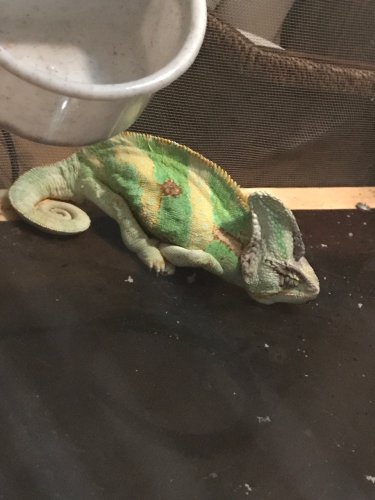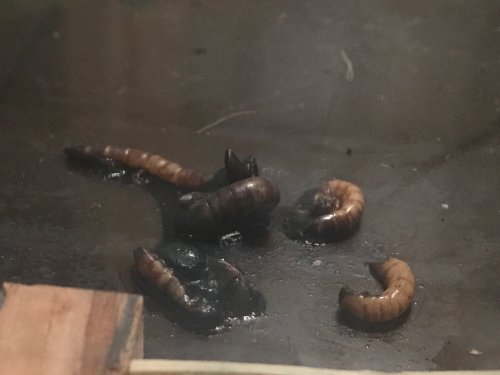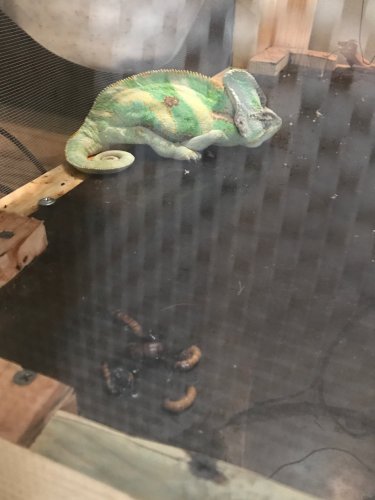vickibugg0918
New Member
Hi!
We moved into a new home (less than 10 min away) on Friday. Illy (our almost 2 year old Cham) was kept inside his very large cage and transported via work van (this kept him as stable as possible and in the dark). During the short ride he did very well - roaming the cage, eating worms and remaining his "happy" green. We then moved him into the living room, similar to where he was in the old house, and that is where he remains. He immediately started eating his superworms and acting fine, however, today he is lying on the floor of his cage and not moving much at all - still "happy" green - but obviously not acting normal as he doesn't often go to the bottom of his cage and he almost never lays down. There was also a pile of worms on the floor of the cage near him that were either thrown up or that came out as stool - we are not sure. When we open the cage and go to touch him he starts to hiss - which is normal for him.
Please see pictures. Do you think he is sick or dying? Or is he just adjusting to the move and new surroundings?
Thank you for your help!
We moved into a new home (less than 10 min away) on Friday. Illy (our almost 2 year old Cham) was kept inside his very large cage and transported via work van (this kept him as stable as possible and in the dark). During the short ride he did very well - roaming the cage, eating worms and remaining his "happy" green. We then moved him into the living room, similar to where he was in the old house, and that is where he remains. He immediately started eating his superworms and acting fine, however, today he is lying on the floor of his cage and not moving much at all - still "happy" green - but obviously not acting normal as he doesn't often go to the bottom of his cage and he almost never lays down. There was also a pile of worms on the floor of the cage near him that were either thrown up or that came out as stool - we are not sure. When we open the cage and go to touch him he starts to hiss - which is normal for him.
Please see pictures. Do you think he is sick or dying? Or is he just adjusting to the move and new surroundings?
Thank you for your help!




